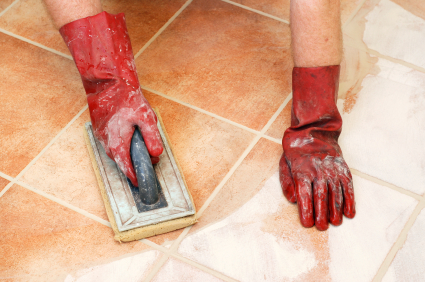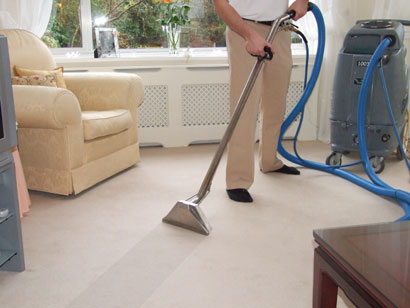Household Cleaning Products That Should Never Be Mixed
The laundry list of household chores requires immediate attention. Grime on the bathroom shower tiles and a stink inside the washing machine prompt the typical homeowner to grab the nearest household cleaners. While cleaning solutions work wonders when used individually, many can be toxic when combined.
Prevent a rash of illnesses, breathing problems and watery eyes—and possible explosions—by being aware of the dangers of mixing certain common household cleaning solutions.
Bleach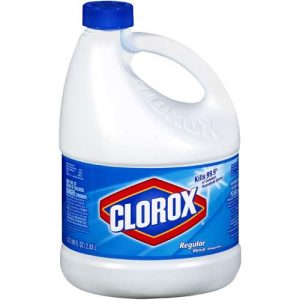
Homeowners reach for bleach at the first signs of stains or unsanitary conditions. Even hospitals, hotels and restaurants use bleach products to disinfect linens and various food preparationPreparation is the steps taken to ready a property, equipmen... More surfaces. Swimming pools, too, are heavily doused with bleach to keep the water clean.
1. Bleach and Vinegar
So, how can a common disinfectantA disinfectant is a chemical substance used to kill or inact... More like bleach be dangerous? Used alone, bleach is nontoxic. But when combined with other household cleaners, like vinegar, toxic fumes can be released into the air. The mix of bleach and vinegar produces chlorine gas.
Even with minor exposure to these noxious fumes, a series of uncomfortable symptoms can persist. The chlorine gas causes watery eyes and difficulty breathing. People who inhale the gases start to cough. The released vapors may also result in a chemical burn to a person’s eyes or lungs.
2. Bleach and Ammonia
Ammonia is a colorless gas with highly irritating properties. The gas is commonly found in many household cleaning solutions. Anywhere from five to ten percent of ammonia gas may be present in household cleaning products, like window cleaners and glass cleaning solutions.
When combined with bleach, ammonia produces a harmful gas known as chloramine. In humans, exposure to the vapors from a mix of bleach and ammonia causes symptoms that are similar to inhaling bleach and vinegar; however, the symptoms are compounded by chest pain and shortness of breath.
3. Bleach and Rubbing Alcohol
Rubbing alcohol is useful for many household cleaning projects. As a surface disinfectantA disinfectant is a chemical substance used to kill or inact... More, isopropyl alcohol, also known as rubbing alcohol, disinfects the surfaces of smartphones, computer keyboards or makeup brushes. Stainless steel gets a sparkling shine once rubbing alcohol removes water spots.
Mixing rubbing alcohol with bleach seems like it would produce an even more powerful cleaner. But do not do it! The result can be extremely irritating and even toxic. As a general rule, never mix bleach with any other liquid—even other cleaning solutions—except water.
In fact, pouring rubbing alcohol into a basin of bleach creates what is known as chloroform. Exposure to low levels of chloroform causes mild dizziness or nausea. High concentrations of chloroform could damage a person’s nervous system, lungs and kidneys and may even result in death.
4. Bleach and Toilet Bowl Cleaners
As mentioned, combining bleach with other cleaning products, like toilet bowl cleaners, leads to disastrous—not cleaner—results. A toilet bowl cleaner’s acidic formula mixed with the chemical properties of bleach release noxious gases that cause watery eyes and breathing difficulties.
Vinegar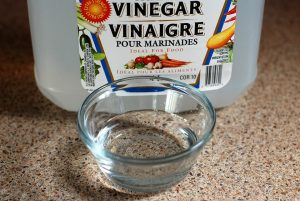
When ethanol alcohol ferments, vinegar is produced. Cleaning vinegar contains a higher concentration of acids than the vinegar used in cooking. Being non-toxic, accessible to homeowners and very effective in cleaning all types of household goods, vinegar is a household staple.
5. Vinegar and Baking Soda
DIY cleaning projects often call for a mix of vinegar and baking soda. But beware! The combination can erupt into an explosive mess, especially if sealed in a container. Vinegar has acidic properties, and baking soda features alkaline ones. Avoid the fizzing reaction by never combining the two.
6. Vinegar and Hydrogen Peroxide
Reasonable as it may seem to mix vinegar and hydrogen peroxide and create a potent cleaner, resist the temptation. Combining these two in a single bottle produces peracetic acid. The result is extremely corrosive. In high concentrations, the solutionA solution is a homogeneous mixture of two or more substance... More can irritate peoples’ eyes, nose, skin and throat.
Vinegar and hydrogen peroxide may be used to clean a surface if the former solutionA solution is a homogeneous mixture of two or more substance... More is allowed to dry thoroughly. Once the vinegar completely dries, it is then safe to apply a layer of hydrogen peroxide. However, mixing the two solutions in a bottle will produce ill consequences.
Drain Cleaners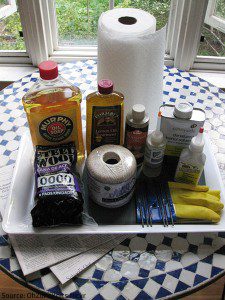
Effective at dislodging grime inside a water pipe, drain cleaners are intended to be used alone—not in conjunction with other drain cleaners. By itself, each drain cleaning formula is designed to be powerful at dissolving the gunk that accumulates in sink and bathtub drains.
7. Drain Cleaners and Other Drain Cleaners
Combining two drain cleaners in order to produce an improved clean is dangerous. The homeowner will never get a doubly sparkling clean. Rather, an explosion is likely to occur. Home experts even advise against using one drain cleaner product right after the other.
Safely creating effective cleaning solutions from scratch can be possible. Property owners who are intent on a deep clean, though, should be aware of the dangerous effects of attempting to produce doubly powerful cleaners by mixing various household cleaning formulas.
Working with Professional Cleaning Services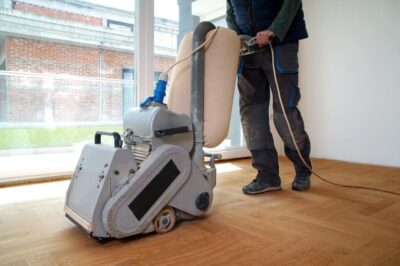
Instead of embarking on a disastrous path while attempting to clean your commercial property, hire a professional cleaning service. Experienced and knowledgeable crews arrive at your business to thoroughly clean it using safe cleaning products.
Professional commercial cleaning services are comprehensive. These specialists have the necessary janitorial skills and cleaning product knowledge to sanitize any property without introducing harmful fumes.
Commercial cleaning services include carpet cleaning, hard floor cleaning (including wood, vinylVinyl is a durable synthetic plastic material commonly used ... More and ceramic) and upholstery deep cleaning. Technicians are also trained in sanitizing healthcare environments teeming with bloodborne pathogensPathogens are microorganisms such as bacteria, viruses, or f... More and infectious waste.
Many professionals utilize only green cleaning solutions during each visit because harmful chemicals can be dangerous to the environment. Skilled specialists prevent the health issues associated with harmful cleaning formulas by using only eco-friendly ones.










